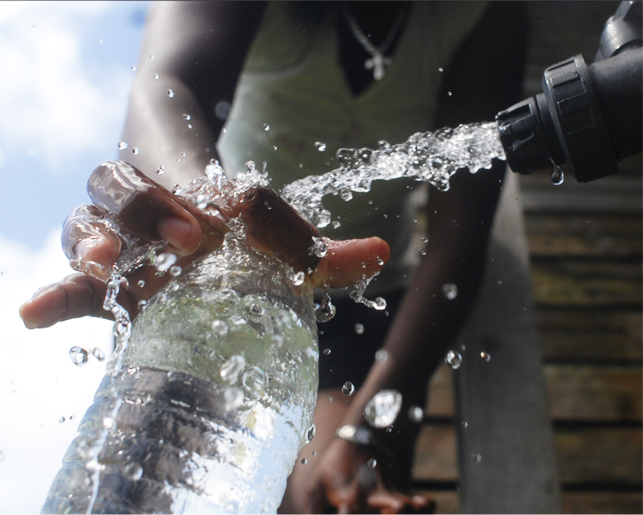

MDG-F bringing safe water to hardest-to-reach communities

As experts and policymakers gathering in Stockholm for World Water Week look for ways to tackle the world’s water problems, the MDG Achievement Fund (MDG-F) is assisting governments on five continents to bring safe drinking water and sanitation to the world’s most disadvantaged people.
More than 2.7 billion people – nearly half the population of the developing world – lack access to basic sanitation, and almost 900 million do not have access to safe water. Mass migrations to urban areas are putting increasing pressure on city water supplies, while people in the most remote rural areas remain out of reach of any improvements in sanitation services.
“Unclean water locks communities into cycles of disease and poverty, and is a profound obstacle to sustainable human and economic development,” says Jose Antonio Gonzalez, senior advisor of the MDG Fund. “Bringing safe water and sanitation to the hardest to reach, most deprived populations is crucial if we are to achieve the Millennium Development Goals (MDGs) equitably.”
The MDG Fund is working with governments in Central and South America, Africa, Asia and Eastern Europe to halve the number of people without access to safe water and basic sanitation by the year 2015, one of the targets of Millennium Development Goal 7.
How public services are governed can determine whether people have access to basic needs such as clean water. MDG-F-supported programmes work to improve the governance of water and sanitation services, increase investment in them, and involve citizens – especially the poorest -- in all phases of the projects, from initial design to the management, operation and maintenance of water systems.
In Angola, local governments are promoting a network of autonomous water and sanitation utilities, which are owned and managed by citizen groups. Over 120,000 people will get direct access to safe drinking water and adequate sanitation through this MDG-F-supported initiative.
In Albania, a joint UNDP/World Bank programme funded by the MDG-F is helping to tackle the country’s water and sanitation problems by improving government and regulatory oversight of water companies and giving consumers a stronger voice in the provision of water services.
Less than 20% of the people in Nicaragua’s poorest regions have access to drinking water and sanitation. There, a MDG-F-funded programme is engaging governments at all levels -- national, regional, municipal and communal – to create local water and sanitation committees and to launch a "Safe Water" campaign, which includes awareness-raising strategies, hygiene promotion and delivery of kits to disinfect water at home.
In the Philippines, the MDG-F is helping to provide safe water to 122,000 households in disadvantaged regions around the country. And in Paraguay, where the majority of indigenous people use surface and rainwater because they are not connected to pipes, the MDG-F is encouraging native and remote rural populations to improve their access to services by actively participating in water management projects and decision-making.
The 11 MDG-F-funded “Democratic Economic Governance” programmes, which are run jointly by UN agencies working with governments and local institutions, have a value of almost $60 million.